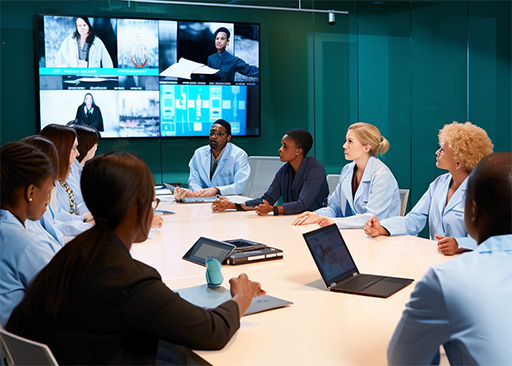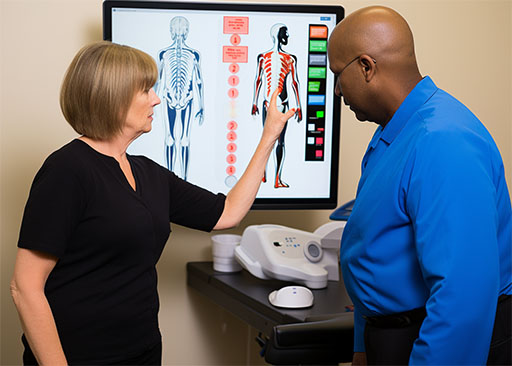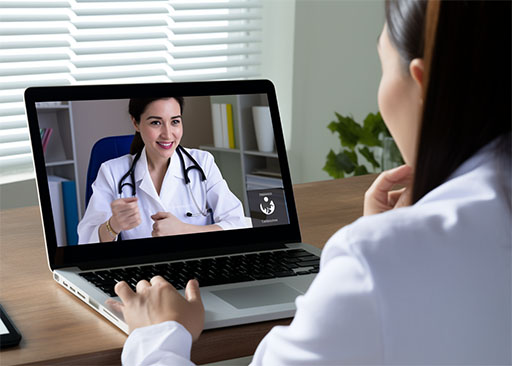Healthcare Communication: Strategies for Success

Furthermore, we will highlight the profound effect of empathy on patient support and how it can impact client outcomes and satisfaction. Lastly, we will address the importance of nurturing teamwork among medical staff and how it fosters a collaborative healthcare environment.
Reducing Readmissions
Effective communication is vital to ensure patients receive the appropriate support they need. Furthermore, it helps prevent medical errors and misunderstandings that can seriously affect patient safety. Health care providers with good communication skills, such as active listening and empathy, can enhance client engagement and promote shared decision-making.
By listening to clients and empathizing with their experiences, healthcare providers can better understand their needs and preferences, resulting in more personalized and patient-centered support. The significance cannot be understated, as it profoundly impacts patient outcomes and their overall experience.
How can Communication Influence Patient Safety and Satisfaction?
Effective communication plays a crucial role in ensuring patient safety and satisfaction. By promoting accurate information exchange, it helps prevent errors and misunderstandings. Moreover, good communication empowers clients, making them feel more involved and satisfied with their care. Active listening and empathy from healthcare providers further enhance trust and overall patient experience.
Overcoming Language Barriers with Interpreters

Overcoming barriers is crucial for providing quality care and ensuring patient safety. Language barriers pose a challenge when patients and healthcare providers do not speak the same language. However, using interpreters or translation services can bridge this gap. Cultural differences can also hinder communication, so it’s essential to understand and respect various cultural norms and values.
Limited health literacy can make it difficult for patients to understand health information, but using plain language and visual aids can help overcome this. Hierarchy and power dynamics within teams can inhibit open communication, so creating an environment where all members feel comfortable speaking up is essential.
Technology barriers, including inadequate communication, can be addressed using telemedicine and electronic health records to improve patient outcomes. Healthcare professionals can ensure effective communication and improve the overall experience by addressing these barriers.
Enhanced Discharge Communication for Successful Transitions
Successful transitions play a crucial role in ensuring seamless and efficient care delivery. Implementing strategies to facilitate these transitions, such as providing clear instructions and follow-up care appointments, is essential for promoting patient safety and positive outcomes. Discharge planning is also crucial to successful changes, ensuring clients are prepared and supported as they leave the hospital or care facility.
Clear and concise communication between healthcare providers is vital to avoid errors and misunderstandings during transitions. Utilizing standardized tools, such as handoff protocols, improves the transfer of critical information between care providers. This ensures that all necessary details regarding a patient’s condition, support plan, and ongoing concerns are effectively communicated.
To foster collaboration and reduce errors, organizations should implement training programs that enhance the skills of their staff. These programs can provide healthcare professionals with the necessary tools and techniques to communicate effectively with patients, their families, and other care team members. Such training programs can be particularly beneficial for those working in human services.
Technology also plays a significant role in facilitating transitions. Utilizing electronic health records allows for a seamless exchange of patient information, ensuring that all support providers have access to critical data. This enables them to make well-informed decisions and provide optimal medical support during transitions.
By implementing these strategies, healthcare organizations can improve transitions, leading to better patient outcomes, reduced readmissions, and enhanced client satisfaction. Effective communication during these transitions, including follow-up support for patients and their family members, is vital for delivering high-quality care and maintaining the continuity of the patient’s plan. It is also essential to monitor and report any adverse events that may occur during the transition process.
The Role of Technology in Healthcare Communication

Mobile health applications and wearable devices enable real-time monitoring, promoting preventative support and early intervention. Secure messaging platforms and video conferencing tools facilitate team collaboration, enabling quick decision-making and seamless information exchange.
Artificial intelligence and machine learning algorithms analyze vast patient data, aiding healthcare professionals. Patient portals and online appointment scheduling systems empower clients to manage their needs conveniently. The role of technology in enhancing health systems is crucial in improving patient outcomes and driving innovation in healthcare delivery.
BioScan can provide a comprehensive overview of a patient’s health status. This scan, which includes galvanic skin response testing, generates valuable data that can be shared among healthcare providers. By accessing this information, healthcare professionals are better equipped to communicate effectively and make informed decisions about the patient’s care.
Can Technology Improve Patient-Provider Communication?
Technological advancements can potentially enhance patient-provider communication channels and improve the healthcare system significantly. With telemedicine platforms, clients can have virtual appointments, while patient portals and mobile apps enable secure messaging and access to medical records. Additionally, remote monitoring devices provide real-time health data.
The Power of Empathetic Communication in Patient Care
Empathy plays a vital role in patient care, improving satisfaction and trust. By actively listening to clients and validating their concerns, healthcare providers create a safe and supportive environment. This not only enhances the patient-provider relationship but also profoundly impacts patient outcomes.
Effective communication is proven to reduce medical errors and enhance the overall quality of care. Recognizing its importance, organizations now focus on training their providers in empathetic skills. Additionally, technology is being leveraged to improve healthcare settings. Telemedicine and secure messaging platforms allow for convenient and timely critical information exchanges. By embracing empathy and harnessing technology, providers can deliver patient-centered care that makes a difference.
The Impact of Empathy on Patient Outcomes and Satisfaction
Empathy plays a crucial role in healthcare communication, as it profoundly impacts patient outcomes and satisfaction. When providers demonstrate empathy, patients feel understood and supported, improving client outcomes and higher satisfaction levels. By showing kindness, providers can build trust with their patients, creating a solid foundation for effective communication.
This, in turn, enhances the client experience and contributes to the overall quality of care. Patients who perceive their providers as empathetic are more likely to comply, leading to better health outcomes. Healthcare organizations and leaders recognize the importance of empathy in achieving patient-centered care and emphasize implementing compassionate communication strategies to foster positive patient-provider relationships.


Nurturing Teamwork Through Effective Communication
Effective communication is vital in healthcare settings, fostering teamwork and collaboration among medical team staff. Clear and open communication is essential to exchange critical information accurately and efficiently. Regular meetings and tools can facilitate effective communication among providers, enabling them to coordinate care effectively and make informed decisions.
Furthermore, effective communication, including the exchange of information, profoundly impacts patient outcomes and satisfaction. When healthcare professionals communicate effectively, clients are more likely to receive the necessary health information, experience improved patient safety and have a positive experience. Additionally, addressing challenges such as language barriers or different styles is crucial to ensure all team members can accurately convey and understand information.
Training and education programs can be implemented to improve skills among healthcare professionals. These programs focus on enhancing verbal communication, promoting empathy, and equipping caregivers with the necessary tools. By nurturing effective communication among medical staff, organizations can create a collaborative environment that improves patient-centered care and overall health outcomes.
How does Effective Communication Foster Collaboration?
Effective communication in healthcare plays a vital role in fostering a collaborative environment. It promotes teamwork, ensures accurate information sharing, improves patient outcomes, and enhances client satisfaction. Creating a coordinated approach to care builds trust and encourages active involvement in patients’ journeys.
Communication Skills in the Medical Field
Developing practical communication skills is crucial in the healthcare field. It leads to successful patient outcomes and enhances client satisfaction and trust. Healthcare professionals can refine their skills by focusing on essential aspects. First, they should prioritize good listening skills and empathy.
This helps them better understand patients’ needs and concerns, ultimately improving the quality of care provided. Additionally, using clear and concise language and avoiding medical jargon is essential for ensuring understanding between providers and patients. Non-verbal cues, such as body language and facial expressions, can also significantly convey empathy and build rapport.
Implementing technology, such as secure messaging platforms, is another way to enhance efficiency among healthcare professionals. These platforms enable quick and secure exchange of critical information, improving coordination and collaboration within the care team. Finally, continuous training and feedback are vital for professionals to refine their skills continuously.
By staying up-to-date with best practices and receiving constructive feedback, they can ensure that their communication approaches align with evolving client needs and develop a patient-centered care approach.
Conclusion

Empathy, too, holds immense power in patient care, positively impacting outcomes and satisfaction. Nurturing teamwork among medical staff through effective communication leads to better coordination and, ultimately, improved patient care. As healthcare professionals, we must continuously refine our communication skills to provide the best possible care.
